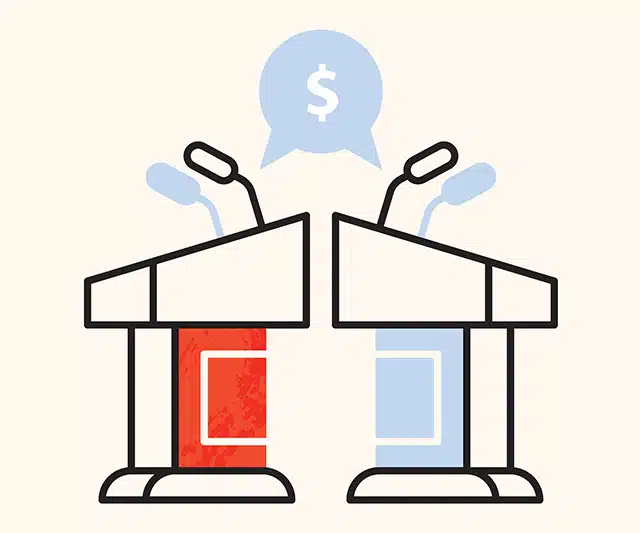Amost 4 in 5 Americans expect their personal finances to suffer if the presidential candidate they favor loses the election, a new survey reveals.
Americans are bracing for potential financial challenges and taking steps to safeguard their financial well-being, according to the latest CFP Board research report, titled Americans’ Financial Outlook and the 2024 Election.
Despite widespread concern about the November presidential election, public sentiment is nuanced, according to the study’s authors. While 45% of Americans are anxious about the upcoming election, 58% are optimistic about its potential to benefit the U.S. economy and 51% express optimism about the election’s impact on their personal financial well-being.
“In times of uncertainty, sound financial advice is more important than ever,” said CFP Board CEO Kevin R. Keller, CAE. “Working with a CFP professional can help people make informed decisions, protect their finances and stay on track to achieve their long-term goals — regardless of the election’s outcome.”
A resounding 92% of survey respondents agree that cost of living and inflation are important considerations when choosing a candidate. Other key issues they list are personal income growth (85%), tax policies (82%), housing costs (82%) and interest rates (81%). And 80% consider the long-term viability of Social Security and Medicare (76%) when choosing a candidate.
Although half of Americans anticipate they will feel less financially secure if their favored candidate loses, concerns vary across party lines. Republicans are more concerned about financial challenges like higher taxes (47%, compared to 34% of Democrats and 33% of independents) and greater difficulty paying bills (43%, compared to 33% of Democrats and 30% of independents) if their candidate loses. Democrats are focused on potential increases in healthcare costs (36%, compared with 27% of Republicans and 28% of independents).
In anticipation of the election, survey respondents are increasing savings (37%), decreasing spending (34%) and looking for additional sources of income (24%). In addition, 63% are postponing financial decisions until after the November election, and 26% are delaying a vacation. They are also delaying purchase of a car (21%) or home (20%).
“The upcoming election is causing many Americans to reassess their financial strategies, with a significant number choosing to delay major decisions until the results are known,” said Kevin Roth, Ph.D., Managing Director of Research at CFP Board. “This cautious approach highlights the importance of working with a CFP professional who can provide objective advice and help clients navigate political and economic uncertainties, ensuring that they remain focused on their long-term financial security.”







